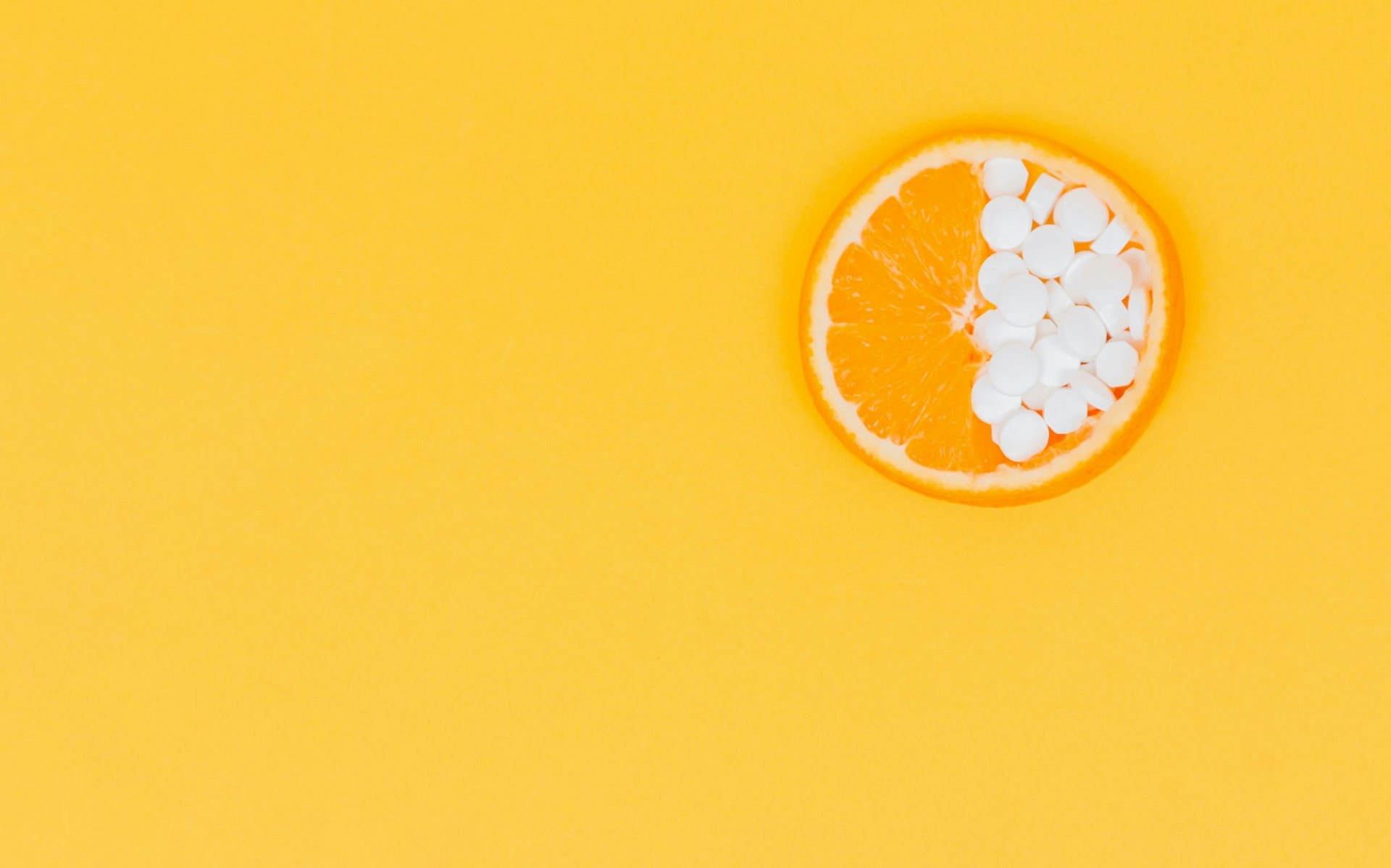No, cold-pressed or freshly squeezed orange juice doesn't naturally contain vitamin D. However, many store-bought orange juices are fortified with vitamin D during processing (along with calcium, since both nutrients work together).
Despite their good vitamin C content, oranges and orange juice aren't a great source of vitamin D. Vitamin D is most often obtained through exposure to sunlight and certain foods.
Fortified orange juice may seem like an easy way to get more vitamin D, but it has it's drawbacks. Store-bought orange juice typically has more added sugars, flavors, and other unwanted additives compared to cold-pressed orange juice. If you are still interested in supplementing your vitamin D intake through orange juice, when choosing orange juice products, make sure they are fortified with vitamin D by checking the label or contacting the manufacturer.
What is Vitamin D?
A healthy body needs vitamin D. It is an essential vitamin that helps regulate calcium and phosphorus in the body. It also plays a role in maintaining proper bone structure and health. Vitamin D helps the body to absorb calcium, which is needed to make strong bones. Combined with calcium, vitamin D protects you from osteoporosis, which thins and weakens your bones and makes them more prone to breaking. It is a fat-soluble nutrient, which means your body can store vitamin D in fat cells.
Sources of Vitamin D
Sunlight is a natural source of vitamin D. The only foods that contain significant amounts of vitamin D are fortified orange juice, fortified dairy, eggs, fish, and mushrooms. Fortified orange juice has 15% of the recommended daily value of vitamin D, so this option is not great if you are looking to get your daily recommended value. Due to the standard sedentary and indoor American lifestyle, fortified foods are the main source of vitamin D in the average American diet. If you are vitamin D deficient, it is important to get adequate sunlight, and ask your doctor if supplementing would be a better option rather than consuming extra sugar.
Is Sunlight a Good Source of Vitamin D?
To answer this question, you must look at all the variables that affect vitamin D production: your skin pigmentation, your general age, your latitude, the time of day you spend outside, and the season.
Despite the fact that we can make vitamin D from sunlight, many people don't make enough, especially those living at high latitudes (far north/south), spending plenty of time indoors, or having darker skin.
The amount of sunlight needed by those with lighter skin to make enough vitamin D was measured in Valencia, Spain. Researchers took into account how much clothing the participants wore and what time of year it was. Valencia is about the same latitude as Kansas City (MO).
It takes about 8 to 10 minutes of sun exposure at noon to make your vitamin D amount in the spring and summer (with the hands, face, neck, and arms exposed). Vitamin D production needs nearly two hours of sun exposure at noon during the winter when only 10 percent of the body is exposed to the sun.
Vitamin D Capsules vs. Fortified Orange Juice
Studies have determined that Vitamin D2 and vitamin D3 are equally bioavailable in orange juice and capsules. However, many people choose to take vitamin D supplements in the form of capsules to avoid store-brought, processed orange juice and the extra sugar that comes with it.
As a general rule, you're better off drinking a glass of cold pressed OJ that is blended with other fruits and veggies to consume less sugar and a greater variety of vitamins and minerals while supplementing with vitamin D.



Comment